Between March 19 and March 22, almost fifty people came together at Berekfürdő to share knowledge and participate in accredited training on contextual theology within the Roma Ministry of the Diaconia of the Reformed Church in Hungary. The conference focused on ethnic-based conflict management and social inclusion. Participants learned the material through board games, quizzes, and a film club.
On Sunday evening, the first arrivals to the training were able to lay the groundwork for their learning with quizzes on Roma culture and the Roma Ministry of the RCH. Attila Dezső, a staff member responsible for communication within the Diaconia of RCH, prepared these quizzes. Participants learned facts like which Roma artist received the Kossuth Prize on March 15 and which churches are supporting schools in Roma communities.
On Monday morning, Pastor Róbert Balogh from Váchartyán preached the word of God based on Judges 10:1-5, emphasizing that our service is valuable and important to the Lord even if we do not achieve world-famous results. “Don’t expect miracles from the big programs—it’s enough to start by going to a family, sitting at their table and drinking coffee with them. The essence of service lies in being there when people need it,” he said.
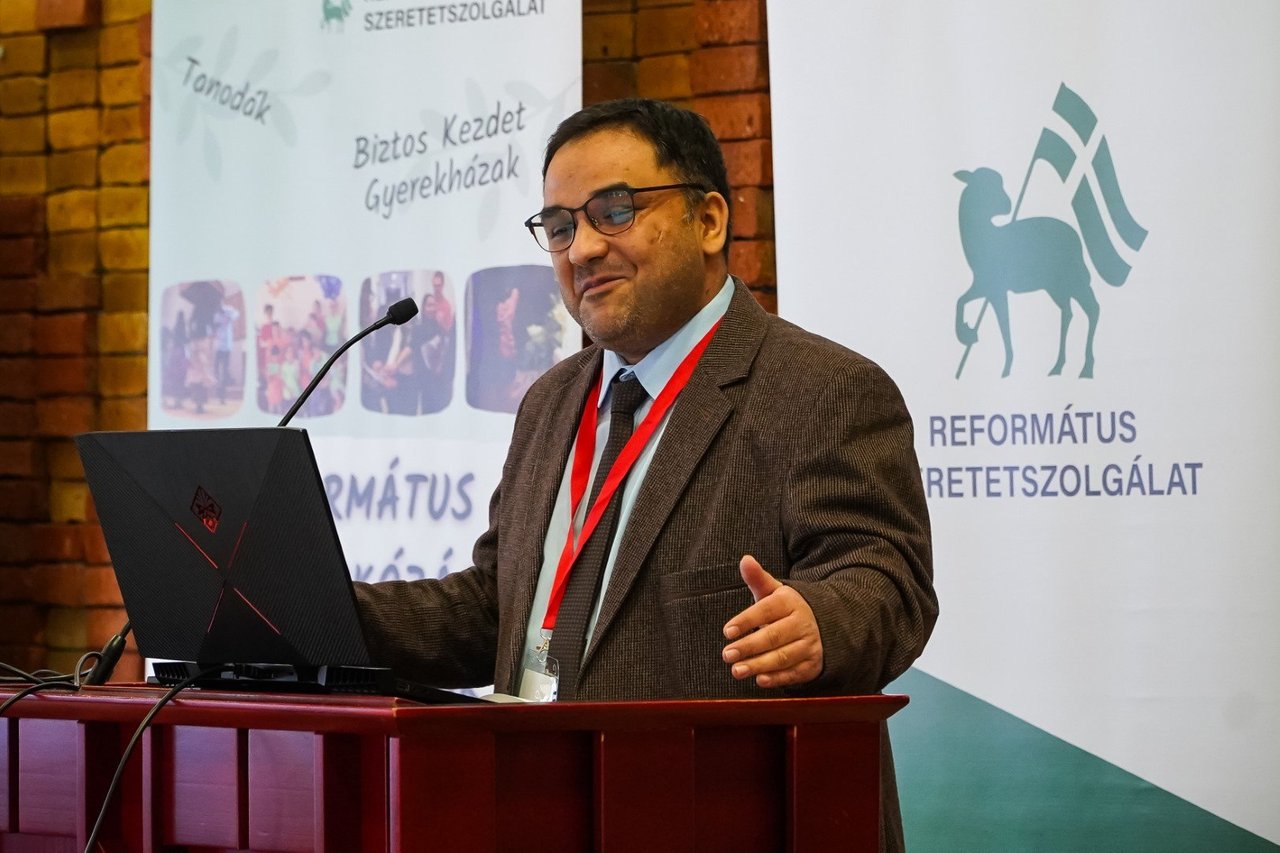
The first lecture of the day focused on mission on the peripheries of society. Róbert Balogh, a professor in the Department of Romology at Károli Gáspár University, explained that we need to see people as subjects of the mission rather than objects. He shared that it is completely wrong to think that pastors will “missionize” the Roma. In the Old Testament, those living on the fringes stood as a sign to society, proclaiming that the people must renew their relationship with God. “This is the case with Gypsies today,” said the speaker.
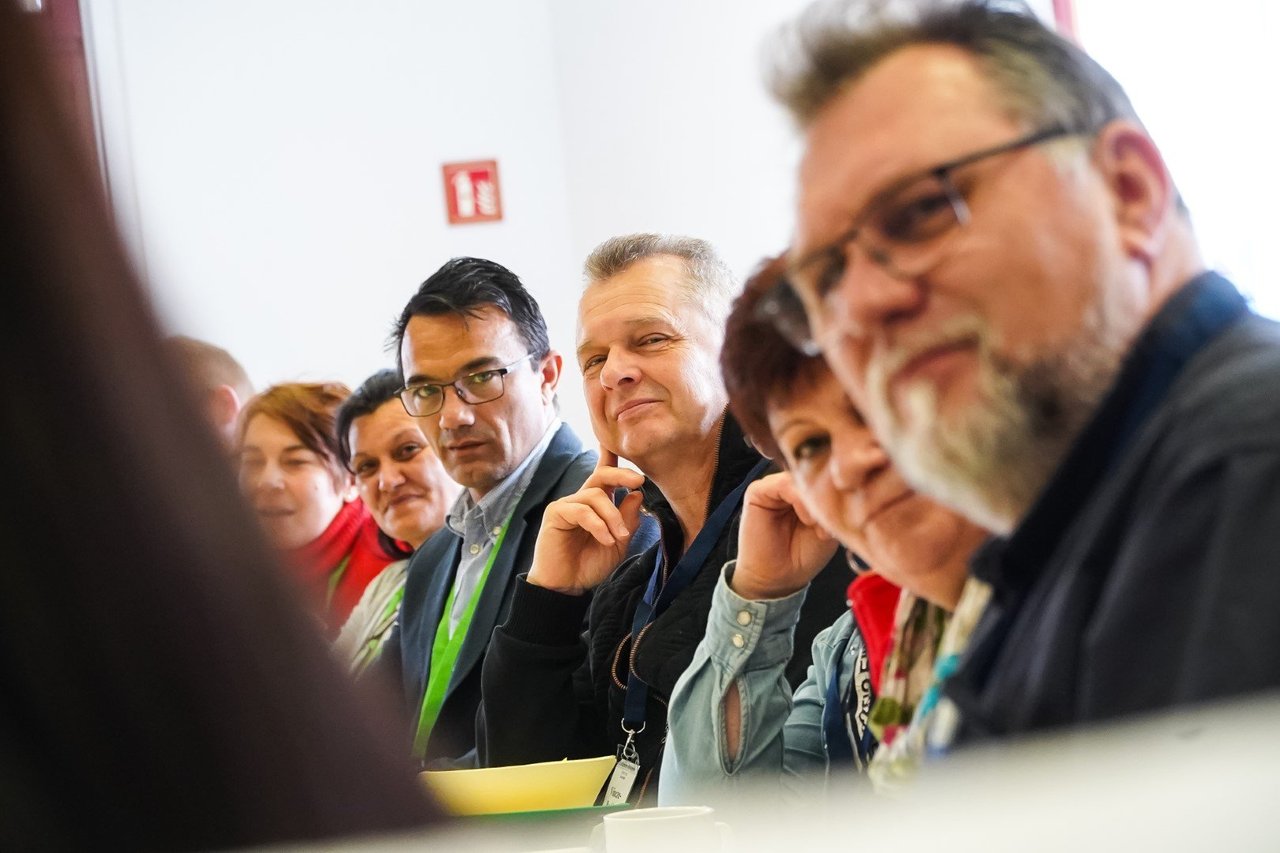
In small groups, the participants engaged with three historical sources about the Roma community. Szabina Sztojka, the pastor leading the Roma Ministry, continued the conference with a presentation on contextual theology within Roma communities. She encouraged participants to continue to apply contextual theology in the remaining workshops. She shared that our churches should emphasize becoming similar to Christ instead of insisting that everyone who joins the Reformed community fits in with the majority.
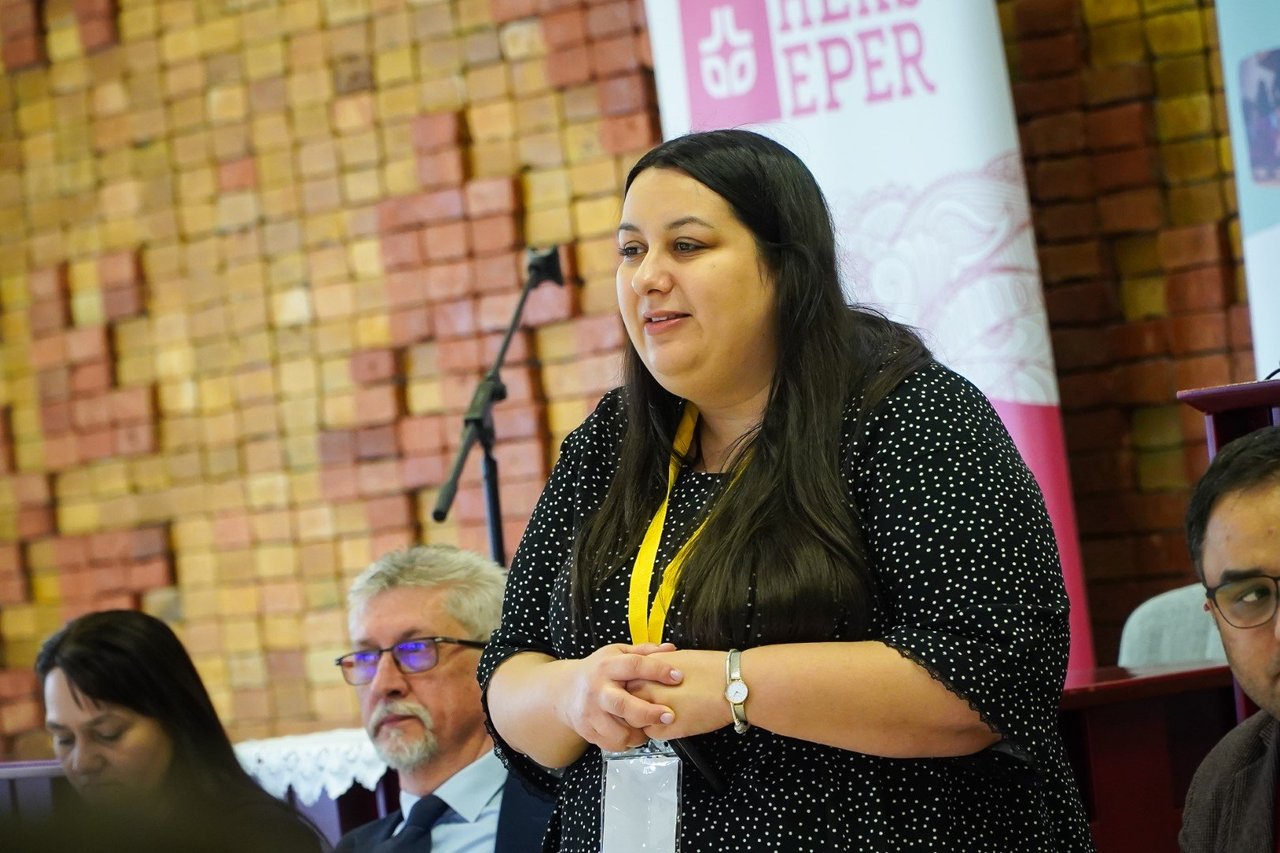
In the next session, participants took part in a film club. They watched the short film “Sing,” which was awarded an Oscar in 2017, and reflected on the questions it raised. They considered the responsibility of teachers and educators in children’s development and shared examples of solidarity they had experienced between young people. In the closing block of the day, Tamás Eperjesi, head of the Department for Social Inclusion of the Diaconia of the RCH, helped to reflect on Monday’s presentations.
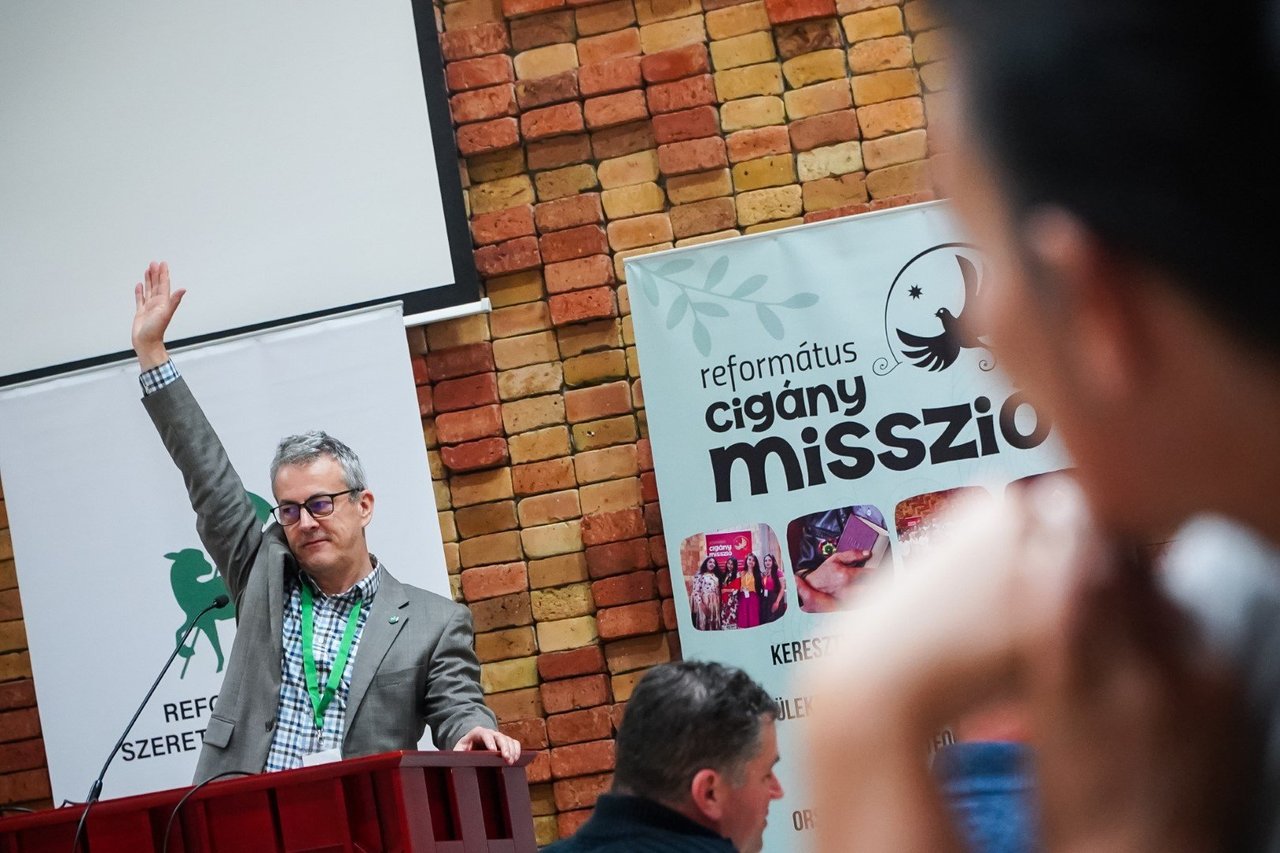
The next day began with a devotion led by Pastor Szabina Sztojka. She explored the story of the anointing of Jesus, sharing that although grief cannot be avoided—and is even necessary for our healing—death does not have the last word. The program continued with a workshop led by Kriszta Naszádi, the coordinator of the Inclusive Education program of the Swiss Church Aid Organization (HEKS). In the workshop, participants collected the values of their communities around the issue of inclusion. “Jesus’ service can be understood as inclusion, since he removed the obstacles that stand between us and the Lord,” she shared. Later, as part of an exercise, the participants were able to gain insight into the life of the Magyarcsanád Reformed Primary School through a screening. This school was the first to get involved in inclusion-strengthening institutional development. In the next session, participants split into groups to perform a stakeholder analysis of three churches: Újléta, Sellye and Okány.
In the afternoon, Tamás Eperjesi spoke about the programs of the Reformed social inclusion services: the Roma Ministry, the afterschool programming, the Safe Start Homes and the Roma colleges for advanced studies. He also touched on the role of the Reformed church in the Emerging Settlements (FETE) program. Lívia Böröcz, Head of the Development and Integration Programme of the HRCA, spoke about the current events of the program. Later in the day, Lívia Böröcz, Katalin Forró (HRCA) and Tamás Eperjesi presented the inventory and mobilization of the strengths inherent in Reformed communities. In the following session, participants used the “World Cafe” method to become familiar with the practical possibilities of Reformed social inclusion programs. After that, György Nagy, pastor of Mátészalka, along with Kata Kovács and Sándor Turgyán, colleagues of the church, presented the operation of their afterschool program supported by HEKS.
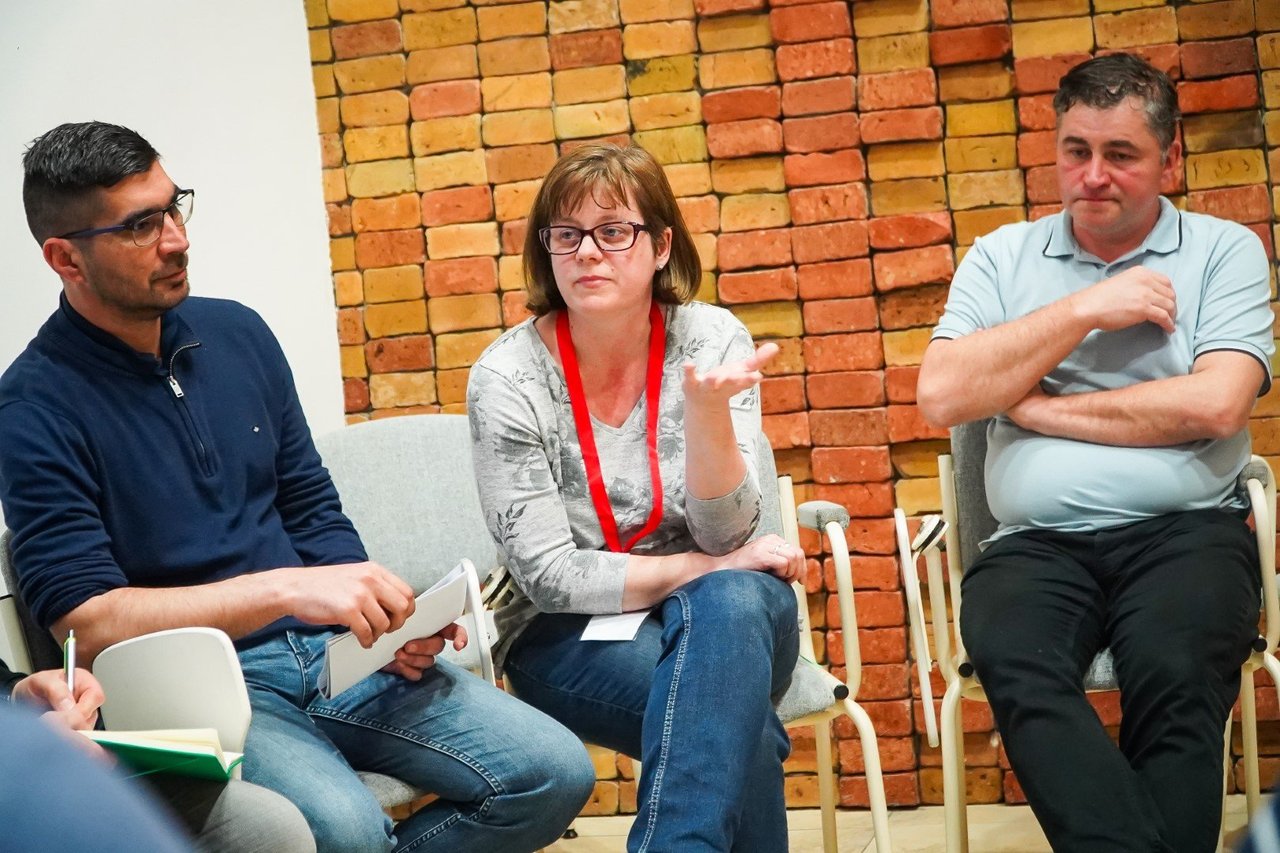
Dénes and Tímea Gyirgyó also shared their experiences of the afterschool center in Esztár, supported by the Diaconia and HEKS in Esztár. In a separate group, Pastor László Kormány shared the joys and challenges he experienced as the professional leader of the school in Kisszekeres operating under the maintenance of the Diaconia. In the evening, the colleagues from the HRCA’s Crossroads Program in Ózd led a board game called “Roll the dice! Make up your mind! Make your choice!” that made the participants move and think. The game used comical tactics to pose questions like how to survive on a minimum income until the end of the month or what life would be like in a house without electricity and heating.
On the last day of the pastors’ training, Pastor Zoltán Hunor Miklós, colleague of the Diaconia’s social inclusion program, opened with a devotion. He shared the story of the Samaritan woman, encouraging listeners to enter the life of others the way Jesus entered the life of the Samaritan woman. Afterwards, Szabina Sztojka and Andrea Ignácz jointly held a session on ethnic-based conflict management. In small groups, the participants collected examples of ethnic conflicts they had experienced and discussed what characterizes the way non-Roma and Roma think about themselves and each other. To close the block, the leaders used an element of the Reconciliation Seminar to list the “fruits” of prejudice (such as hatred, murder, and war) on a tree.
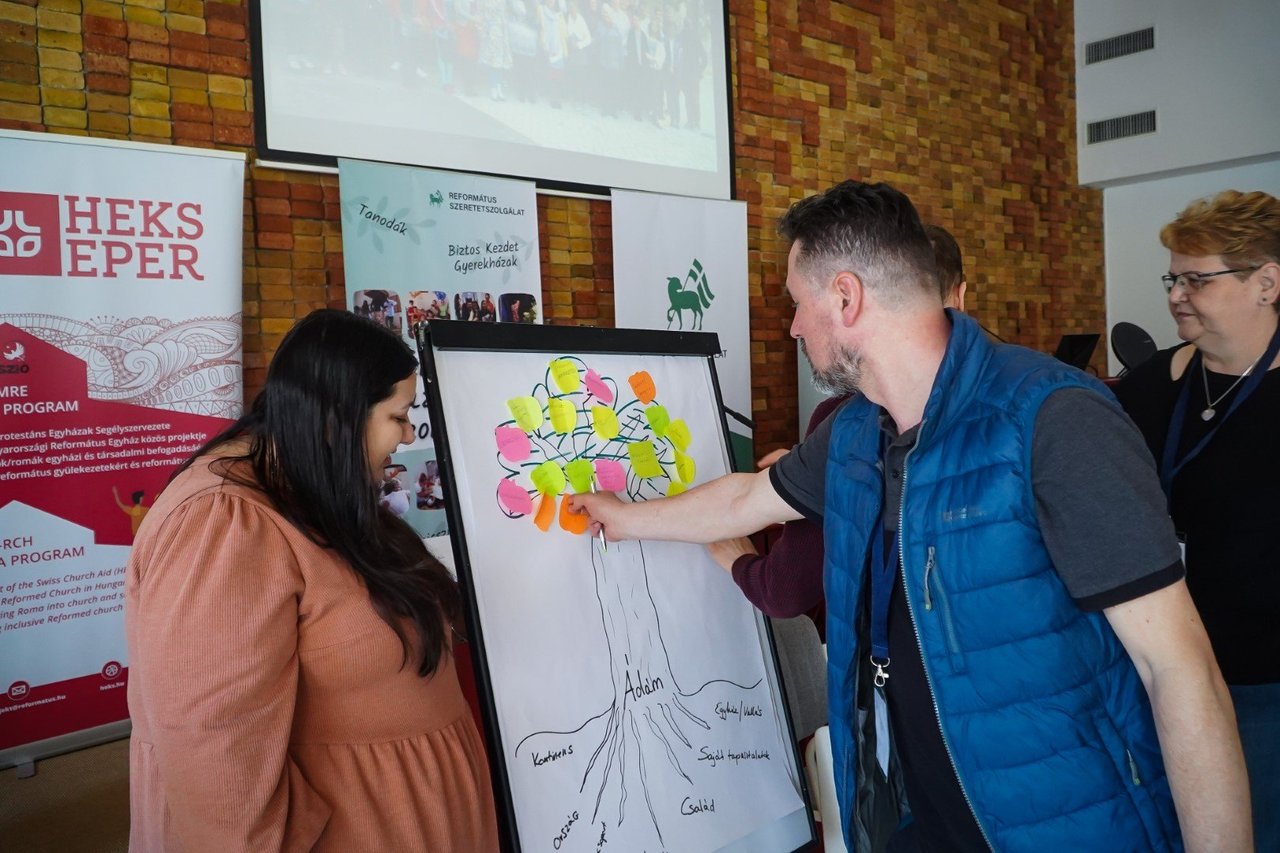
At the end of the conference, all participants gathered to share which program element they found the most valuable. The group’s unanimous opinion was that acquiring and strengthening their network of relationships was an incredible resource for further service. This sentiment echoed Galatians 6:2: “Carry each other’s burdens, and in this way you will fulfill the law of Christ."
Photos: Attila Dezső and Andrea Ignácz